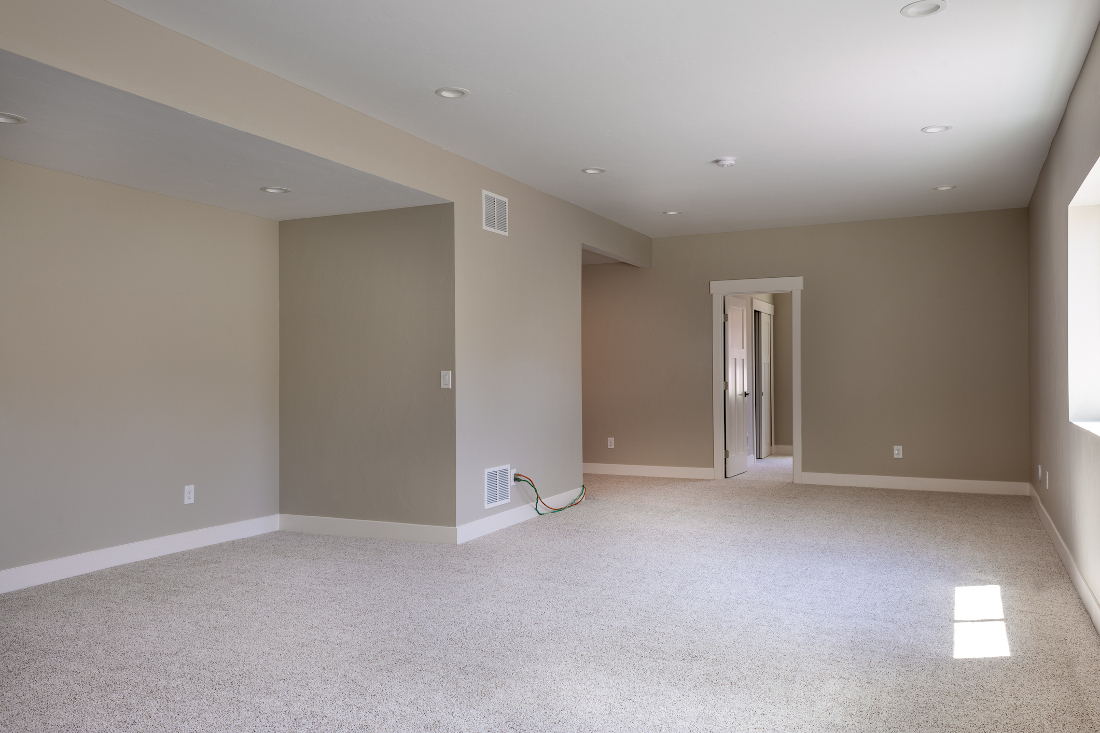
25 Apr How To Build A Basement For Renting Out
Turning your basement into a rental space can make you some extra money and make your property worth more.
However, it’s incredibly important to keep in mind that in order to do it right, you have to plan carefully and follow the rules.
How to Rent Out Your Space
Before beginning any basement renovations with the aim to rent, it’s crucial to address several key practicalities:
- Market Analysis: Start by examining the local rental market. Assess the location and features of your basement compared to others in the area, and determine a competitive rental price.
- Regulatory Compliance: Investigate local zoning and rental regulations specific to basements. Requirements may include ceiling height, emergency exits, and other safety standards. Ensuring your basement is up to code avoids legal issues down the line.
- Insurance Adjustments: Consult with your insurance provider to secure a policy suitable for a rental property, which may cover potential tenant damages and liabilities.
- Tenant Screening: Develop a thorough screening process for potential renters. Check their background, credit score, and rental history to ensure they are reliable and will maintain the property well.
- Lease Agreement: Draft a comprehensive lease that outlines rent, security deposits, maintenance responsibilities, and house rules. Having a lawyer review the lease can help ensure its fairness and legal validity.
- Promotion: Once your basement meets all requirements and is ready for occupancy, promote it through online platforms, social media, and local newspapers to attract tenants.
Remember, while renting out your basement can provide additional income, taking the correct preparatory steps is vital for a smooth and profitable rental experience.
Navigating the Legal Landscape
Transforming your basement into a rental unit can be complicated when it comes to laws and regulations. Here’s a simple guide to ensure your basement renovation stays on the right side of the law:
- Check Zoning Laws: Before you swing a hammer, make sure to chat with your local zoning office to check if you can legally rent out your basement. Grabbing the necessary permits upfront can save you a heap of trouble down the road.
- Know Your Building Codes: Brush up on the building codes that apply to basements, like how high your ceilings should be or the type of windows you need. Bring in some licensed pros who know their stuff to ensure your space is up to requirement standards safety-wise.
- Safety First: Keep your future tenants safe by installing smoke and carbon monoxide detectors, along with fire extinguishers. Ensure there are obvious exits, and if you can, add a separate entrance for more safety points.
- Tackle Health and Environment: Address any health hazards such as mould or poor ventilation. Waterproof, ventilate, and insulate your basement well to make it a healthy and comfortable place to live.
- Make it Accessible: Planning to rent to people with disabilities? Make sure your space is accessible—think ramps, wider doorways, or bathrooms designed to be user-friendly.
- Sort Out Utilities: Figure out how you’re going to manage utilities like water, electricity, and heating. You might need separate meters for each, or come up with a plan to fairly split the costs with your tenants.
Keeping these tips in mind is crucial for a smooth and legal basement rental setup.
What You Need to Know Before You Start
Before you begin your basement renovation project, consider these important factors:
- Budgeting: Fixing up your basement isn’t cheap. You’ve got to think about the cost of materials, labour, getting the right permits, and all those inspections. Make sure the rent you could charge would cover your costs and then some—otherwise, it might not be worth the hassle.
- Timing: Getting your basement ready could take a while. Be ready for things to possibly get delayed or for some bumps along the way. It’s smart to keep any future tenants in the know about when they might be able to move in.
- Maintenance Responsibilities: If you’re the landlord, the buck stops with you for repairs and keeping the place looking good. If that sounds like a drag, you might want to think about hiring a property management team to handle it.
- Tenant Relationships: Getting along well with your tenants really helps. Always be clear, quick to respond, and fair—it sets the stage for a nice, smooth relationship.
- Tax Implications: Have a chat with a tax advisor about how renting out your basement might impact your taxes. There are some deductions you might get for things like repairs and upkeep, which could sweeten the deal at tax time.
At the end of the day, turning your basement into a rental space can bring benefits like making more money and making your property worth more. If you’re ready to start this exciting new project, get in touch with us at Penguin Basements.
At Penguin Basements, our team is here to give you expert advice and help you with everything you need to make your basement into a great rental. Let us help you make a comfortable and legal rental unit that enhances your property with ease today!
Christian Saunders, a seasoned marketing professional hailing from Toronto, Ontario, brings over 5 years of valuable experience to our team.
As a key member of our company, Christian plays a pivotal role in crafting compelling content that you encounter on our website and social media platforms. With a keen eye for detail and a passion for effective communication, Christian ensures that our brand's message resonates with our target audience. Beyond his desk, you might spot Christian on our job sites, skillfully capturing multimedia to enhance our visual storytelling.
Don't hesitate to say hello when you see him in action! Christian's dedication and expertise contribute significantly to our mission of delivering exceptional experiences to our valued clients.




